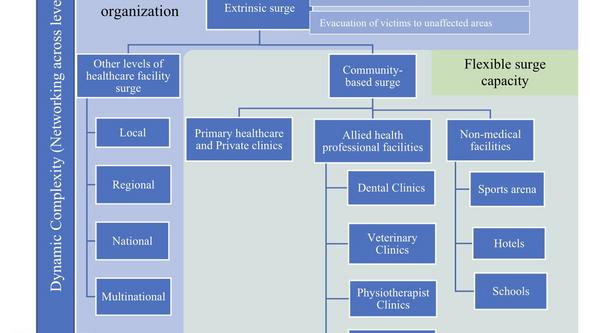
Flexible Surge Capacity in Disaster and Emergencies
Short description
"Flexible Surge Capacity" is a new concept based on international guidelines. It refers to the extra and adjustable human and material resources that can be mobilized in the event of disasters and serious events. This by activating non-professional but trained personnel, as well as various accepted facilities in a fast, flexible, and productive way.
Public health and public education play an essential role in obtaining such flexibility.
Background:
Failed attempts to improve healthcare delivery to communities show distinct flaws that have a higher impact during a major incident or disaster (MID). In disasters and emergencies, the first attempt is to surge the existing capacity. From a healthcare perspective, this can be done in a vertical procedure within the organization. However, resources must be obtained from elsewhere if they are not enough. That is other healthcare organizations or facilities. Any failure to do so will necessitate collaboration with communities and within the existing society, regarding the vital elements of the Surge Capacity, i.e., Staff, Stuff, structure, and system.
Purpose: To create, test and validate foundations for an adaptable resource flow. This is through collaboration with other parties, especially the municipalities, to use society's material and human capabilities. And thereby improve the care of the injured and reduce the medical consequences in crisis and disasters.

The starting point: The project has been ongoing since 2019 when the first description was published and continued by implementing parts of the concept in Sweden and Thailand.
This is about how the municipalities' resources can be used and especially during two distinct occasions; 1) when a hospital must be evacuated (explosions or threats due to military intervention) and 2) when a hospital must be isolated (Pandemics or major infections).
